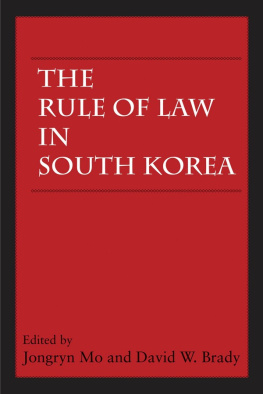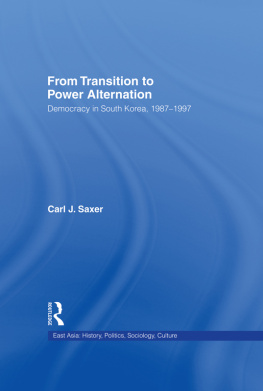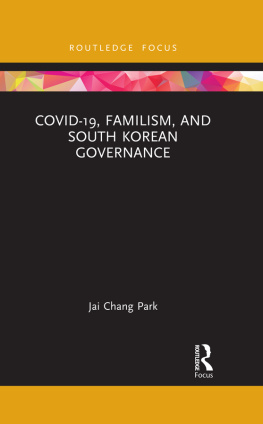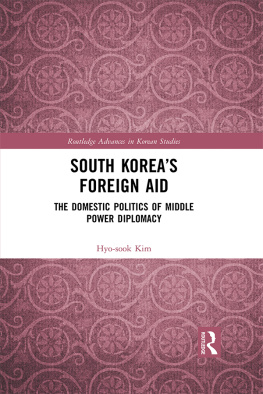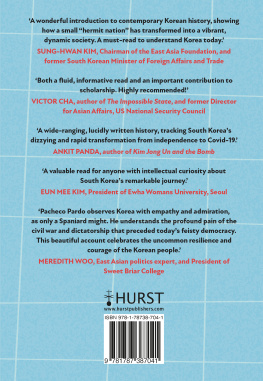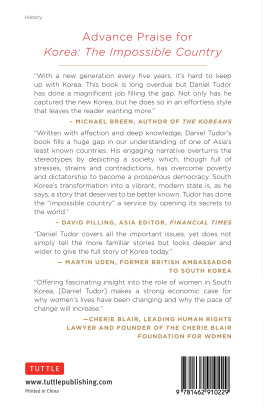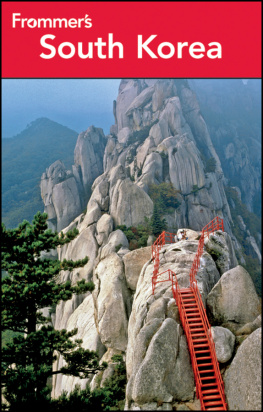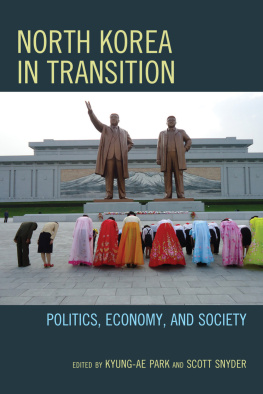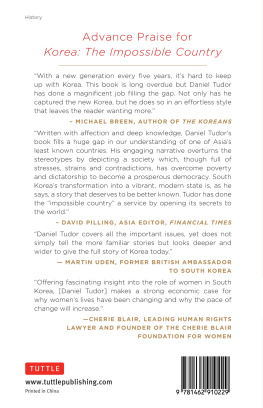The Hoover Institution on War, Revolution and Peace, founded at Stanford University in 1919 by Herbert Hoover, who went on to become the thirty-first president of the United States, is an interdisciplinary research center for advanced study on domestic and international affairs. The views expressed in its publications are entirely those of the authors and do not necessarily reflect the views of the staff, officers, or Board of Overseers of the Hoover Institution.
www.hoover.org
Hoover Institution Press Publication No. 562
Copyright 2009 by the Board of Trustees of the Leland Stanford Junior University
All rights reserved. No part of this publication may be reproduced, stored in a retrieval system, or transmitted in any form or by any means, electronic, mechanical, photocopying, recording, or otherwise, without written permission of the publisher.
First printing, 2010
15 14 13 12 11 10 8 7 6 5 4 3 2 1
Manufactured in the United States of America
The paper used in this publication meets the minimum requirements of the American National Standard for Information SciencesPermanence of Paper for Printed Library Materials, ANSI Z39.48-1992.

Library of Congress Cataloging-in-Publication Data
Jongryn Mo and David W. Brady, editors
The rule of law in South Korea/
edited by Jongryn R. Mo and David W. Brady
p. cm. (Hoover Institution Press publication ; no. 562)
Includes bibliographical references and index.
ISBN-13: 978-0-8179-4892-4 (pbk. : alk. paper)
ISBN-13: 978-0-8179-4896-2 (e-book)
1. Rule of lawKorea (South) 2. Law reformKorea (South). I. Mo, Jongryn, 1961 II. Brady, David W.
KPA2020.R85 2010
340'3095195dc22 2009046360
ISBN 978-0-8179-4893-1 (electronic)
PREFACE
Jongryn Mo and Chaihark Hahm
The papers contained in this volume were originally presented at the Conference on Democracy, Market Economy, and the Rule of Law in Korea, held in November 2004 at the Hoover Institution on the Stanford University campus. The conference was convened under the joint auspices of the Hoover Institution and Yonsei University. The papers have been revised to cover developments through the end of the Roh Moo Hyun administration (20032008).
Scholarly interest in the concept of the rule of law as an ideal for Korean society is not new. It can be traced at least as far back as the 1960s when Korea was one of the poorest countries in the world. Most people then seem to have all but despaired at the enormity of the gap between the ideal of rule of law and the reality of the Korean social and political situation. Today, Korea is a member state of the Organisation for Economic Co-operation and Development (OECD), and is commonly counted as one of the handful of countries that have achieved the dual goal of economic prosperity and political liberalization. Yet many observers still point to the persistent gap between the rule of law and the prevalent practices of Koreans. Unlike economic development or political democratization, the rule of law apparently continues to elude the Korean people. Hence, studies on the rule of law in the Korean context continue to be produced.
Nevertheless, as compared to the previous generations of analysts of Korea, today's scholars are in a better position to assess the status and prospects of the rule of law. This is due in part to better theoretical tools made available through advances in different fields of inquiry, such as law, political science, and developmental studies. In addition, the Korean legal system itself, along with its economy and political structure, has become much more complex, with myriad rules and regulations that simply did not exist half a century ago. In other words, scholars in various disciplines now are able to engage in much more focused, substantive, and empirically-informed studies of the various segments of the Korean society from the perspective of rule of law, rather than engage in general normative discussions about the need to transform the entire Korean society to match some vaguely articulated conception of the rule of law. This partly explains the continuing scholarly attention on the rule of law in Korea. This also means that as Korean law becomes more sophisticated in the future, more studies and analyses of the Korean version of the rule of law will become necessary.
Moreover, this may also mean that the scholarly discourse is now able to move away from the broad appeals for closing the supposed gap between ideal and reality toward more concrete and fruitful investigations of the various parts of the current legal system. It is hoped that the current volume represents such a new development in the discourse on the rule of law in Korea. At the least, it represents a significant departure from the conventional studies on the topic just by virtue of taking an interdisciplinary approach. The chapters are authored not only by lawyers and legal scholars, but also by political scientists and economists, with different outlooks and approaches. Present also at the conference at which the chapters herein were presented were sociologists, practicing attorneys, and specialists from Japan and China. The editors wish to thank all the participants of the conference whose insights and criticism helped to make the event that much more stimulating and meaningful. We particularly wish to thank the presenters and discussants who are not represented in the chapters of this volume: Jennifer Amyx, Jong-Goo Yi, Randall Peerenboom, William Ratliff, Gi-Wook Shin, and Scott Snyder. A special thanks is due the Hon. Lee Hoi-Chang, former prime minister of South Korea and justice of the Supreme Court who, though not present at the conference, graciously agreed to have his paper included in this volume as the lead chapter. We believe that his chapter, significantly enriches the volume by presenting a clear and succinct overview of the debates on the rule of law in relation to the Korean constitution.
We would like to express our appreciation for the Korea Foundation whose grant to the Hoover Institution provided the basis for the project that sponsored the conference. Stephen and Maria Kahng also provided significant support, for which we are most grateful. We also want to thank John Raisian, the Tad and Dianne Taube Director of the Hoover Institution, and Larry Diamond, Charles Wolf Jr., and other members of the Hoover community for their continuing interest and support of this project. The encouragement of Thomas Heller and Gerhard Casper of Stanford Law School was most welcome. We are grateful to the Yonsei Globalization Research Initiative, the Graduate School of International Studies, and its director, Sung-Shin Han, for financially supporting the Yonsei participants. Teresa Judd and Christie Harlick provided much-needed logistical support during the conference. The assistance of Joan D. Saunders during the final stages of editing was invaluable.
INTRODUCTION
The Elusive Goal of the Rule of Law in South Korea
Jongryn Mo
EAST ASIA has come a long way in the development of democracy and a market economy. As late as 1987, Japan was the only free country in East Asia. By the late 1990s, South Korea and Taiwan had joined the exclusive group of free countries. The story is similar on the economic front. South Korean and Taiwanese market economies have shed their developmental past to such an extent that they have become primarily open economies, both in trade and in finance.
But weak legal systems are clouding East Asia's economic and political future. For evidence, all one has to do is point to the pervasiveness of corruption in all East Asian countries. Corruption seems to be part of every East Asian's daily life, regardless of whether she lives in a mature democracy, a new democracy, or a communist regime. Neither does law seem to restrain executive power. East Asian political leaders and bureaucrats have often been accused of arbitrary exercises of power.

